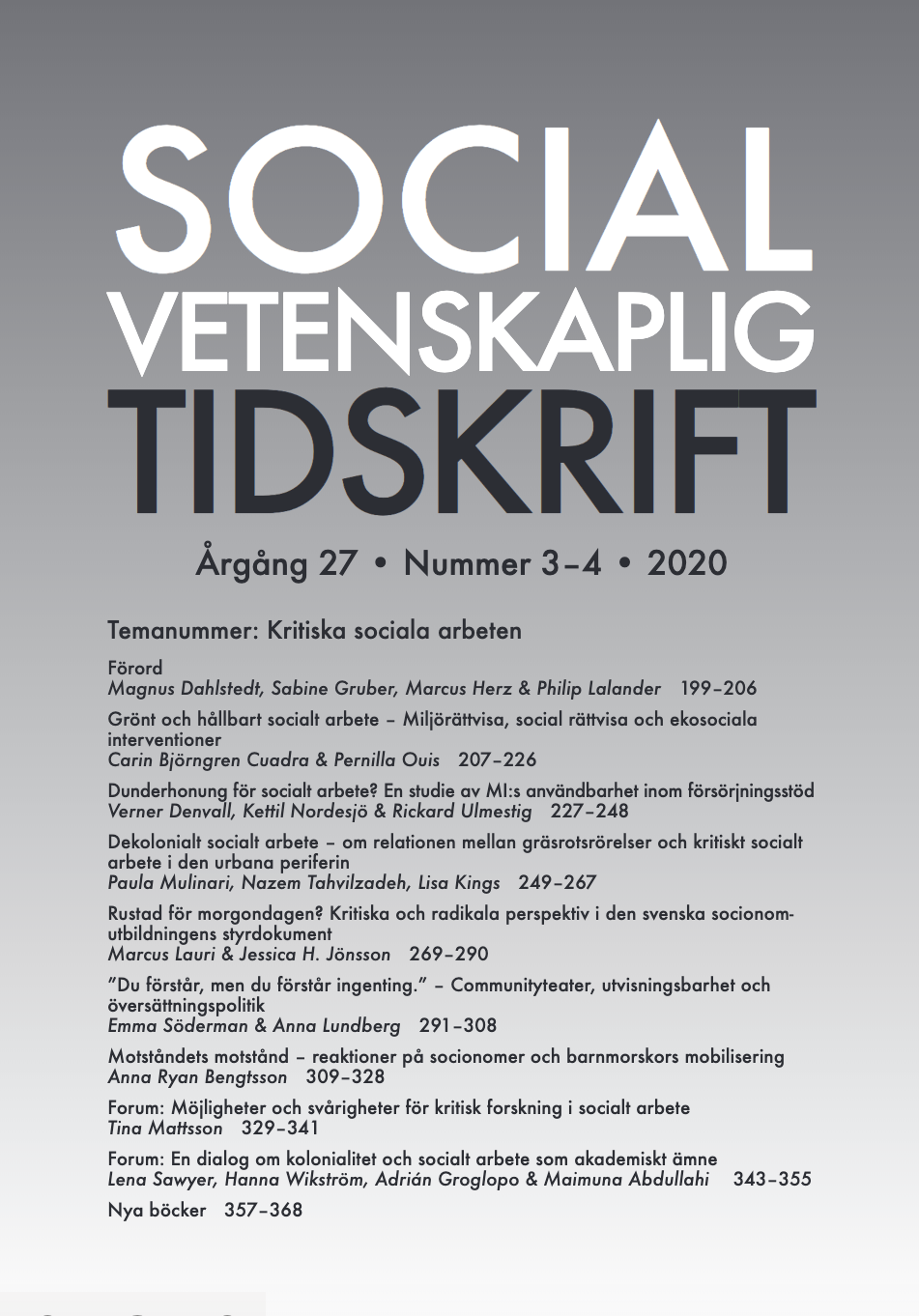Rustad för morgondagen?
Kritiska och radikala perspektiv i den svenska socionomutbildningens styrdokument
DOI:
https://doi.org/10.3384/SVT.2020.27.3-4.3665Abstract
During the last couple of decades, the state of the Swedish welfare society has deteriorated. Political decisions concerning the labour market, housing and education have significantly increased precarious conditions for many people. Income inequality and economic difficulties have increased. Changes in the welfare system make it harder to receive adequate support, while the repressive elements have also increased. We argue that critical and radical perspectives in social work can help reverse this negative development. What students learn in their social work education will affect their ways of understanding social problems, their practice, and their ability to work for change. We therefore regard social work education as an important arena for social change. But what is the state of such perspectives at our Swedish universities? This article examines the presence of critical and radical perspectives in the Swedish social work curriculum and attempts to answer the question ”How well equipped are future social workers to work in a critical and radical way?” The study shows that a critical perspective is common in the social work curriculum of some universities, but that critical and radical perspectives in general are absent. We argue that this
Downloads
Publicerad
Referera så här
Nummer
Sektion
Licens
Allt material i Socialvetenskaplig tidskrift publiceras sedan 2022 (Vol 28 Nr 2) med omedelbar öppen tillgång (open access), under Creative Commons-licensen CC BY 4.0. Upphovsrätten till innehållet tillhör respektive författare.
Allt innehåll i tidskriften är fritt tillgängligt utan kostnad och får fritt läsas, laddas ned, kopieras, delas, skrivas ut och länkas. När innehållet används måste författare, källa och licens anges. Författaren kan fritt göra sin publicerade text tillgänglig på institutionella och internetbaserade arkiv, exempelvis sitt lärosätes digitala arkiv eller andra tjänster för detta.
Inga publiceringsavgifter tas ut vid publicering i Socialvetenskaplig tidskrift.


